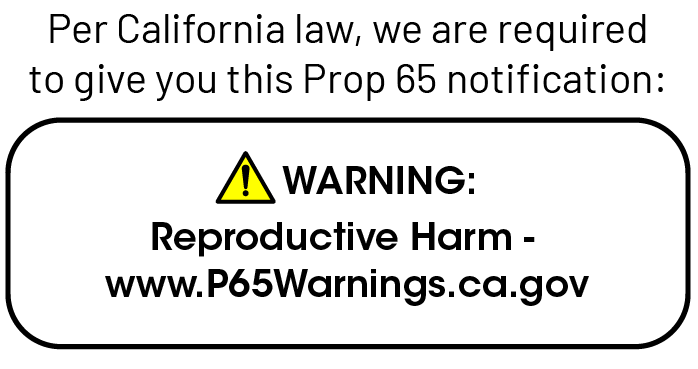What You Need to Know About Solvents in Skincare
Posted by Brendan Leonard on Jun 10th 2022
Chemistry, it’s about relationships right? It’s funny because words like “chemistry” and “relationship” have changed meaning subtly yet pervasively over the course of the years. It was probably that big social media platform that feels so impossible to escape that did it. Do you remember precisely when “is in a relationship with” became a thing?
It’s hard to put your finger on it. But that was perhaps a tipping point in how we use that word.
When you think about it, we’re all in relationships, all the time, with all sorts of people, and ideas. Here at Skin Actives Scientific, for instance, we would like to think that we have a relationship with you, the reader. But, you don’t have to post about it online in order for the material realities that surround any given relationship to be true (you can post about your relationship with us though, in fact we’d love it if you would!).
And chemistry, as a science, is about observing those relationships.
In fact, the word “chemistry” was probably co-opted to describe interpersonal interactions before the word “relationship” was! But it all ends up being rather apropo doesn’t it?
How do you measure interactions? How do you predict how two people, or substances will get along? What happens when you put two things together? Did you want that reaction or no?
In today’s blog we’re going to talk about solvents. Solvents are an important part of chemistry that describe a substance that dissolves another substance of a different kind. Solvents are why we have consistency in a product, why you don’t just get a cream that is full of oil ribbons or a serum with a bunch of floating grit.
Once we understand that solvents are vital, what should we be looking for in the solvents we accept for our skincare? Today, we’ll break some of these concepts open with the help of our Founder, biochemist Dr. Hannah Sivak.
Let’s proceed.
What is a Solvent?
The above definition was perhaps a little loose. Let’s turn to Dr. Sivak to help us get a better understanding of what we’re really talking about here:
“A solvent is a liquid used to dissolve a powder, or, in a more precise definition from Wikipedia: ‘A solvent (from Latin solvō , “I loosen, untie, I solve”) is a substance that dissolves a solute (a chemically different liquid, solid or gas), resulting in a solution.’ The solute dissolves because its molecules interact with the molecules of the solvent. Example: water will dissolve sugar but oil will not.”
So that is a strong position for us to begin from, let’s take a look out how solvents get used in skincare. Dr. Sivak continues:
“In skin care, solvents are ingredients that are used to dissolve other ingredients. They include water, vegetable or animal oils, silicones, alcohols, etc. When I plan a formulation, my objective is to use actives at the optimal concentration. If the active is not soluble in water or in oil, I have to find an alternative solvent, because the skin will not absorb an un-dissolved active. In most SAS products, there are so many ingredients that I like to have a good mix of solvents to give a chance to all those fanciful powders to dissolve and stay dissolved and stable.
The physical properties of an ingredient, including the capacity to dissolve in a particular solvent is fixed. The capacity to dissolve depends on the relations that the molecule can establish with the molecules of the solvent/s. If you want an active to retain its activity, you shouldn’t modify its chemistry, and for this reason its solubility is also fixed. Finding the right solvent (or mix of solvents) is a craft, tables in chemical indexes provide solubility information on a few solvents that are useful in the chemistry lab (water, ethanol, acetone), but of these only water is suitable for skin care use. It is up to the formulator to experiment until they get a nice solution.”
When Dr. Sivak talks about “stability” as a value of formulation, what she is describing is the ability of a skincare product to retain function on a number of levels. When a skincare product is done with formulation and passed quality control, it needs to be stable, meaning that a.) the actives in it are doing what is advertised for the lifetime of the product, b.) the products aren’t spoiling inside the product leading to bacterial growth, c.) that the product retains its color, texture, and scent over the lifetime of the product.
Stability tolerances are different for every company and every product, but this is one of the reasons that Skin Actives produces in small batches with relatively short shelf life, we want our maximally potent and beneficial products to maintain their stability.
Other companies that sell in high volume to big beauty chains you would recognize by name have to keep their products shelf stable too. But because the needs of their business are so different than ours, they formulate to punishing tolerances. For instance many name brand recognizable products are formulated to be shelf stable in warehouses that reach up to 100 degrees for up to five years. Maintaining stability in circumstances such as that means that by necessity, formulating with incredibly low amounts of active ingredients. This can lead to the widespread sale of name-brand products with only the merest hint of an active ingredient, surely not enough to have a positive impact on your skin’s health.
What to Look For in Solvents
There are many options available to you, the consumer as you are making your skin health journey. At Skin Actives Scientific, we want to make it easy for you to choose the products that not only will give you the best results, but that will take the best care of your health.
Here is how Dr. Sivak approaches formulation with solvents:
“I prefer to use solvents that are also actives, like oil or glycerol. Conversely, I would never use a solvent that could produce unwanted effects, like alcohol denatured with methanol. I even avoid pure ethanol, which can be used, but will dry the skin.
Using ‘old’ solvents that have been in use for a very long time is the safest path, because they are well understood and we know exactly where we stand. We should assume that anything we apply to our skin will reach the bloodstream, even if only a tiny fraction. Can our body ‘manage it?’ Will the body metabolize it or eliminate it? How long until it is eliminated from the body? In which form? Any unwanted side effects? All of this information is published in scientific and medical journals and is available to us through scientific databases which collect information from reputed journals.
Your body is mostly water. Water will always be a suitable solvent. Others, not so much. At Skin Actives, we don’t use denatured alcohol, a mix of alcohol with additives that make it unsuitable for drinking. Because ethanol is sold with a huge tax assuming it will be consumed as a drink, companies save money by buying these denatured mixes. Some are unsuitable for the skin, and even pure ethanol should be avoided as it will act as a desiccant.
Other solvents you will see in our formulations include oils, alcohols, esters, and other liquids that the skin “likes”. In our Every Lipid Serum, all the ingredients are lipids, a mix of liquids and solids that will dissolve in the liquid lipids.”
There you have it Skin Actives Family, while water may not seem like much, it’s a valuable solvent you’ll find in a lot of skin care products, including ours. Look for healthy oils that can add to your serums as actives, and stay away from oxidizing alcohols that are bad for your skin.
If you enjoyed hearing from Dr. Sivak, she maintains a personal blog where she discusses science, skin care, and the fascinating world of the skin care industry. If you’d like to check it out, click here!
Thanks for stopping by once again! We have new blog content coming next week. In the meantime, stop by our brand new TikTok feed and follow us for tips, tricks, recipes and other videos we are making there.

